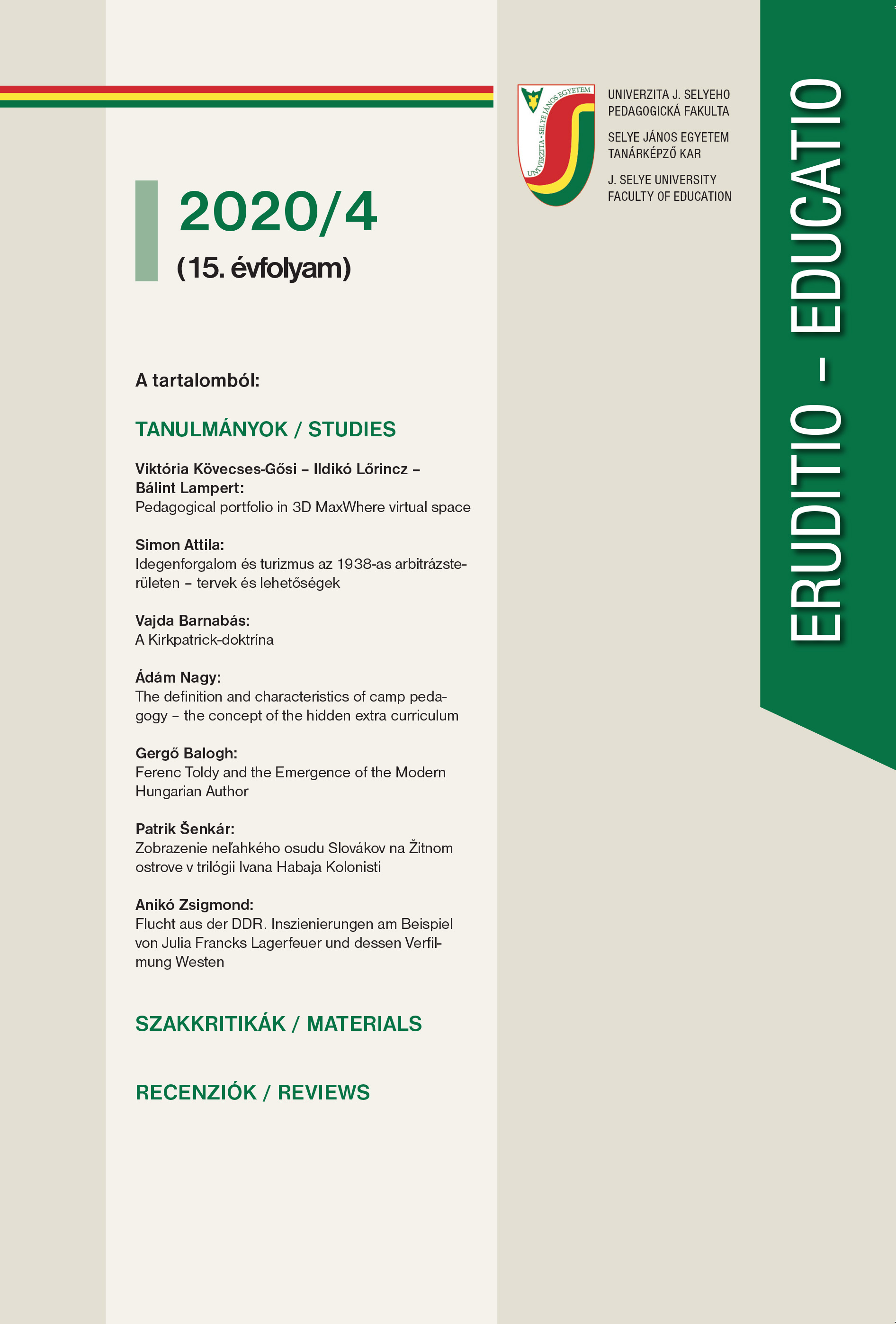Ferenc Toldy and the Emergence of the Modern Hungarian Author
Ferenc Toldy and the Emergence of the Modern Hungarian Author
Author(s): Gergő BaloghSubject(s): Language and Literature Studies, Studies of Literature, Hungarian Literature
Published by: Pedagogická fakulta Univerzity J. Selyeho
Keywords: Hungarian literature; Foucault; literary theory; authorship
Summary/Abstract: Those who can read and write join the dynamic system of producing and receiving texts and become economic factors and subjects to author’s and publication rights where applicable. The general effort to spread literacy, the significant increase in the number of potential authors caused by the legal obligations and educational practices of public schools in Eötvös’s time, the shifts in the status of authorship, along with the broadening publicity in the media due to the sudden rise of journals made the modern regularization of producing, distributing and reproducing texts inescapable in Hungary in the last third of the nineteenth century. If a dimension in the history of education isresponsible for producing the authors and readers who are able to create and accept modern literature in the interest of founding the modern literary consciousness, then the legal and economic contexts reformed in the last third of the nineteenth century are responsible for the institutionalization of authorship, for outlining and stabilizing authorial, press and reading subjects, as well as the relationship between author and text. This study aims to analyze the modern authorial subject’s legal constitution, and the role of Ferenc Toldy in inaugurating it.
Journal: Eruditio - Educatio
- Issue Year: 15/2020
- Issue No: 4
- Page Range: 52-65
- Page Count: 14
- Language: English

